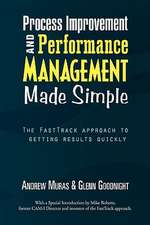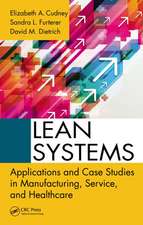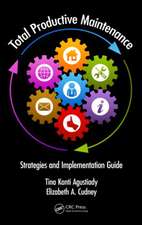Design for Six Sigma: A Practical Approach through Innovation: Continuous Improvement Series
Autor Elizabeth A. Cudney, Tina Kanti Agustiadyen Limba Engleză Hardback – 30 iun 2016
This book offers:
- Methodology on how to implement DFSS in various industries
- Practical examples of the use of DFSS
- Sustainability utilizing Lean Six Sigma techniques and Lean product development
- Innovative designs using DFSS with concept generation
- Case studies for implementing the DFSS methodology
| Toate formatele și edițiile | Preț | Express |
|---|---|---|
| Paperback (1) | 439.80 lei 6-8 săpt. | |
| CRC Press – 31 mar 2021 | 439.80 lei 6-8 săpt. | |
| Hardback (1) | 500.92 lei 6-8 săpt. | |
| CRC Press – 30 iun 2016 | 500.92 lei 6-8 săpt. |
Preț: 500.92 lei
Preț vechi: 667.96 lei
-25% Nou
Puncte Express: 751
Preț estimativ în valută:
95.86€ • 99.71$ • 79.14£
95.86€ • 99.71$ • 79.14£
Carte tipărită la comandă
Livrare economică 14-28 aprilie
Preluare comenzi: 021 569.72.76
Specificații
ISBN-13: 9781498742559
ISBN-10: 1498742556
Pagini: 379
Ilustrații: 165
Dimensiuni: 156 x 234 x 36 mm
Greutate: 0.67 kg
Ediția:1
Editura: CRC Press
Colecția CRC Press
Seria Continuous Improvement Series
ISBN-10: 1498742556
Pagini: 379
Ilustrații: 165
Dimensiuni: 156 x 234 x 36 mm
Greutate: 0.67 kg
Ediția:1
Editura: CRC Press
Colecția CRC Press
Seria Continuous Improvement Series
Public țintă
Professional Practice & DevelopmentCuprins
Introduction. Design for Six Sigma Overview. History of Design for Six Sigma (relationship to Six Sigma). Design for Six Sigma Methodology (Roadmap). Design for Six Sigma Culture and Organizational Strategies. Identify. Project Charter (project description, goals, requirements, expectations, boundaries). Balanced Scorecard. Benchmarking. Project Management. Assess Risk. Invent/Innovate. Gathering the Voice of the Customer (survey design). Quality Function Deployment. Kano Model. TRIZ. Axiomatic Design. Assess Risk. Develop. Lean Product Development. Design for x Methods. Concept Generation. Pugh Concept Selection Matrix. Modeling of Technology. Design Failure Modes and Effects Analysis (talk about mistake proofing here too). Assess Risk. Optimize. Design of Experiments. Modeling of Robustness and Tunability (add ideal and transfer functions here too). System Additive Model. Process Failure Modes and Effects Analysis (add mistake proofing here too). Reliability Testing. Response Surface Methods. Measurement Systems Analysis. Assess Risk. Verify. Modeling of Variational Sensitivities (across the integrated technology platform). System Variance Model. Robustness Additive Models. Capability Analysis. Statistical Process Control. Future and Challenges of Design for Six Sigma. Assess Risk. Case Studies. Product DFSS Case Study. Healthcare DFSS Case Study. Service DFSS Case Study
Recenzii
"Very well written book in simple language that will help readers understand the related topics. The book covers related topics to implement Six Sigma. The case studies discussed by the authors will make understanding and adaptability of the subject by the professionals."
—Abdul Razzah Rumane, Construction Management, Sijjeel, Company, Kuwait
—Abdul Razzah Rumane, Construction Management, Sijjeel, Company, Kuwait
Descriere
Design for Six Sigma (DFSS) is in demand for new processes and companies looking to innovate. This book will explain how the DFSS methodology begins with defining the problem or opportunity which then leads to two paths: 1) If it has never been done before, design it right the first time using DFSS. 2) If it already exists and needs to be fixed, use reactive tools such as DMAIC to proceed. Using DFSS, the approach can be simple to meet customer needs by understanding requirements, considering current process capability, finding and fixing gaps, and verifying predictions to have an end result of a happy customer.
Notă biografică
Elizabeth Cudney, Ph.D. is an Associate Professor in the Engineering Management and Systems Engineering Department at Missouri University of Science and Technology. She received her B.S. in Industrial Engineering from North Carolina State University, Master of Engineering in Mechanical Engineering and Master of Business Administration from the University of Hartford, and her doctorate in Engineering Management from the University of Missouri – Rolla.
In 2014, Dr. Cudney was elected as an ASEM Fellow. In 2013, Dr. Cudney was elected as an ASQ Fellow. In 2010, Dr. Cudney was inducted into the International Academy for Quality. She received the 2008 ASQ A.V. Feigenbaum Medal and the 2006 SME Outstanding Young Manufacturing Engineering Award. She has published four books and over 40 journal papers. She is an ASQ Certified Quality Engineer, Manager of Quality/Operational Excellence, and Certified Six Sigma Black Belt. She is a member of the ASEE, ASEM, ASQ, IIE, and the Japan Quality Engineering Society (JQES).
Tina Agustiady is a certified Six Sigma Master Black Belt and Continuous Improvement Leader at BASF. Tina serves as a strategic change agent, infusing the use of Lean Six Sigma throughout the organization as a key member of the Site Leadership team. Tina improves cost, quality, and delivery at BASF through her use of Lean and Six Sigma tools while demonstrating the improvements through a simplification process. Tina has led many Kaizen, 5s, and Root Cause Analysis events through her career in the healthcare, food, and chemical industries.
Agustiady received a BS in industrial and manufacturing systems engineering from Ohio University. She earned her Black Belt and Master Black Belt certifications at Clemson University. Agustiady is also the Institute of Industrial Engineers (IIE) Lean Division board director and chairman for the IIE annual conferences and Lean Six Sigma conferences. She is an editor for the International Journal of Six Sigma and Competitive Advantage.
















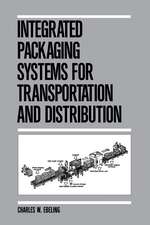
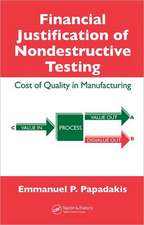


![Using Hoshin Kanri to Improve the Value Stream [With CDROM]: From Theory to Practice](https://i3.books-express.ro/bt/9781420084238/using-hoshin-kanri-to-improve-the-value-stream-with-cdrom.jpg)


